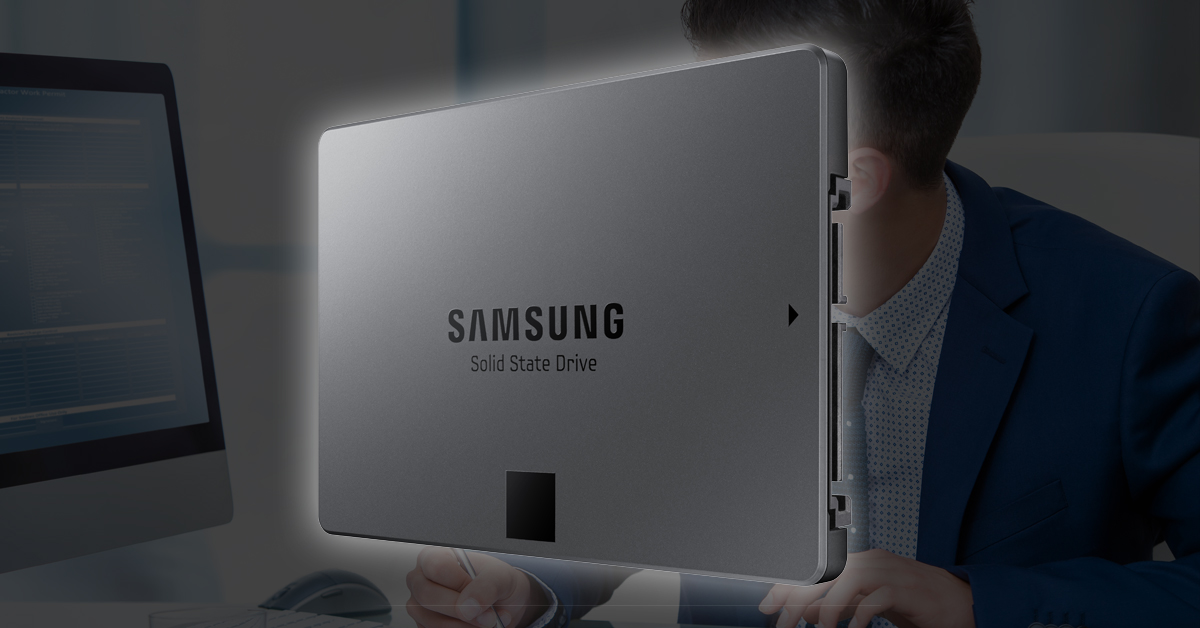
Sure you’ve heard of Solid State Drives and Hard Disk Drives when comparing processors for your company’s computers. But, what’s the difference, really?
Whereas the prices of an SSD once outweighed the performance and storage benefits in favor of HDDs, the simple fact is that now, SSDs are cost-effective and provide an obvious increase in performance in terms of data movement and speed.
The Difference Between SSD and HDD
The major difference between the two is that HDDs come with magnetic storage, and while that means there exist more read/write capabilities, it can also lead to more fragmentation (when a disk is full of data a file can be written across multiple sections and it will end up taking longer to read).
SSDs don’t have this issue as files are written randomly across cells, which increases reading speeds. Overall, SSDs are far more durable than HDDs simply due to the lack of moving mechanical parts. HDDs become worn more easily over time and are immensely more susceptible to damage if dropped.
The Continuing Decline in SSD Costs
Investing in an SSD can make all the difference in your company’s operations as well as employee satisfaction, and thanks to the continuing decline in SSD costs, it doesn’t have to break your IT budget.
Whereas before, the cost of an SSD could be considered a deterrent, prices continue to drop and make it less necessary to opt for an HDD. For about $60 nowadays you can buy a 240GB SSD, which is only roughly $20 less than a 1TB HDD. While the difference between 240GB and 1TB seems immense, opting for the $60 SSD could save time and frustration in the long run in terms of data access and loading times.
Upgrading Networks Increases Productivity
One study found that upgrading to an SSD can halve a laptop’s start-up time. Think of all of the additional tasks your employees could complete if their boot-up time was cut in half.
SSDs increase productivity especially in companies where their work requires manipulating a lot of data. If you’re using large databases, rendering and processing videos or photos, or involved in complex customer management services, SSDs will save you inevitable headaches encountered with HDDs due to a gradual decrease in processing delays.
Increased Speed Equals Happy Employees
We’ve all been there — sitting at our laptop frustrated as all get out waiting for that little spinning wheel to disappear so we can save that thousand-cell spreadsheet we’ve been working so hard on. You can see how decreased speed and long load times can frustrate employees, so we’re sure you can see how increased speed, shorter load times and fast navigation can lead to happy employees.
Now, imagine that you are not only able to work faster, but that every single member of your team is able to work faster. The entire organization will begin to move faster, and they will do so in a more efficient and positive manner, which increases customer relations and overall retention. Simply put, when companies use SSDs they are decreasing the amount of time wasted on one factor they have complete control over: mechanical hard drives.
Keeping Your Network Up-to-Date
As your business continues to evolve to stay relevant, you will inevitably need to adopt new IT technologies to support it. Using a professional team to oversee these types of projects, which include improving access to critical information, automating business processes and helping increase overall employee satisfaction, can help you stay under budget with as little business interruption as possible.
Whether your company needs to modify existing technologies or implement new ones, TechWerxe’s IT professionals will use previous experience and expertise to design a solution that fits your needs.
Source List:
1. https://www.digitaltrends.com/computing/solid-state-drives-vs-hard-disk-drives/3/
2. https://www.tweaktown.com/articles/2759/is_it_worth_upgrading_your_notebook_to_an_ssd_drive/index4.html
3. https://www.extremetech.com/computing/236260-samsung-plants-to-slash-ssd-prices-to-hard-drive-levels-by-2020

